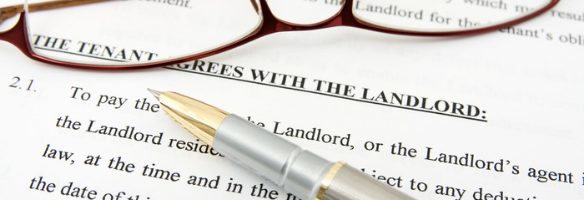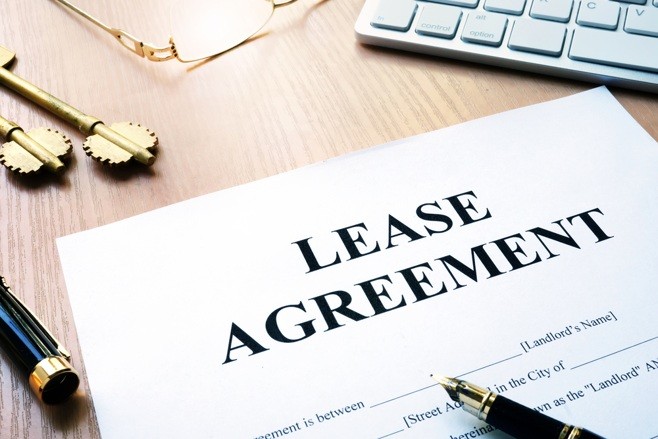Commercial Property Rent Reviews: The Process
Jul 22 2019
Darren Best

What is a rent review? We define commercial property rent reviews as:
“a clause in the lease of a commercial property whereby the amount of rent being paid by the Tenant is reassessed at regular intervals in the contract”
How often rent reviews take place is often detailed in your commercial property lease, whereby a clause in the contract outlines that rent reviews will be carried out at specific intervals, such as every three to five years. This clause will also confirm the commercial rent review process that will be followed in the review, such as a notification period from the Landlord to the tenant (with regards to any increases in rental rates) and the date at which the rental increase will take effect – this is known as a “Trigger Notice”.
The lease will put forward any reasons for the increase in rental rates for the commercial property. This is entirely dependent upon what kind of rent review your Landlord follows. In some instances, this may be the Retail Price Index (RPI), however in most cases it is reviewed based on the open market value of the property. This means that the review will consider the rental rates of similar commercial properties in the area to determine a fair price for tenants.
However, there can be other aspects which will affect the rent, such as:
- The assumed length of lease
- The repairing obligations
- The permitted user
- Alienation provisions
- Certain improvements carried out now or in a previous lease
- Other matters which the lease states are to be regarded or disregarded
Please note: It is essential to consult a professional as soon as you have received any commercial rent review notice by a Landlord, to ensure that the time constraints are strictly adhered to.
 Photo credit: designer491 / Shutterstock
Photo credit: designer491 / Shutterstock
Types of commercial rent reviews
There are different types of rent reviews, which may have potential implications for both parties. The different types of rent review include:
1. Fixed increase rent review
In a fixed increase review, a set figure (or figures) will be agreed between the Landlord and tenant when the Heads of Terms are negotiated. The benefit of this type of review is that both parties will know when to expect the review and how much it will be for. By having this information from the outset, both parties can make provisions for any increases before they happen.
However, many Landlords prefer to opt for an open market rent review or RPI, as this gives them scope for additional increases in rental values if the market is good.
2. ‘Upward only’ open market rent reviews
‘Upward only’ rent reviews are the most popular type of commercial review. In these types of rent reviews, the rent is assessed based on the open market rental value of the property. This means that if the property could be let for a higher amount on the open market, the commercial rent review will likely lead to a price increase. However, to protect the Landlord’s income, an ‘upward only’ agreement means that if the rental market is flagging, there is no need for a decrease in rent – the price will stay at the same level.
3. RPI rent review
The Retail Price Index (RPI) evaluates average changes on monthly basis for the price of goods and services that are purchased by the majority of households throughout the country. The RPI rent review leads to rental increases in line with the retail price index, which means the tenant may be prone to fluctuating rent. It's worth noting that RPI rent reviews are generally also upwards only.
4. Upward-downward open market rent review
Some Landlords decide to reduce rental costs when the economy is not as strong, in order to obtain tenants. This isn’t a very common occurrence as Landlords usually want to achieve the highest amount of money possible for their property, but some Landlords may decide to be more flexible by opting for an ‘Upward-Downward’ review.
This means that the rent charged will be reflective of the open market rental value of the property, and if this is a reduced sum to the current rental payments, the Landlord will offer a lower rate.
 Photo credit: graja / Shutterstock
Photo credit: graja / Shutterstock
Can you negotiate a rental review?
After a “Trigger Notice” is served, the lease may contain a specific requirement for you to service a notice of response, known as a “counter notice”. Here you can consider negotiating the review with your Landlord, with the aim to keep both parties happy – this way, there is no need for the inconvenience of moving premises and sourcing a new Landlord or tenant.
However, if the tenant isn’t happy with the outcome, they are able to object the Landlords’ proposal and/or to make an application for the appointment of a third party (an arbitrator or independent expert) to determine the rent if an agreement isn’t made with the Landlord. In your tenancy agreement, it should outline how a dispute should be managed (if necessary).
We are experts in rent reviews and lease renewals, including rent review disputes. Feel free to get in touch with the Savoy Stewart team today to discuss any queries and/or problems.
Feature image credit: graja / Shutterstock